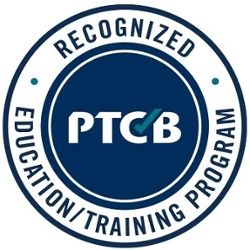Stepping into the world of healthcare often feels like a big leap—one that’s traditionally thought to require years of schooling and a professional degree. However, for high school students interested in exploring medical professions early, there’s an often-overlooked yet highly accessible path: becoming a pharmacy technician. Contrary to popular belief, you generally do not need to be 18 to get started. Many states allow individuals as young as 16 to begin working in pharmacies, provided they meet certain requirements. Coupled with the fact that the Pharmacy Technician Certification Board (PTCB) has no age minimum, this opens the door to an incredible array of opportunities for motivated students.
In this post, we’ll explore the ins and outs of becoming a pharmacy technician while still in high school. We’ll cover what a pharmacy technician does, why you might want to start early, the requirements you need to consider (including state laws and national certifications), and how this early experience can inform your future career choices in healthcare. By the end, you’ll have a clear picture of whether pursuing a pharmacy technician role in high school is the right step for you.
What Does a Pharmacy Technician Do?
Before diving into the specifics of age requirements, it’s important to understand the role of a pharmacy technician. Pharmacy technicians support pharmacists in multiple ways:
Age Requirements: Dispelling Common Myths
The biggest misconception about becoming a pharmacy technician is the assumption that you must be 18 or older. While this is often repeated, it is usually false. Each state sets its own guidelines and regulations through its Board of Pharmacy, and in many states, the legal working age or the minimum age required to become a registered or licensed pharmacy technician is 16. In some cases, it might be 17 or align with the state’s legal working age.
What does this mean for you as a high school student? Simply put, it means the path to becoming a pharmacy technician may be open to you sooner than you think. If you’re eager to jumpstart your career in healthcare, you can potentially begin working and gaining experience while you’re still in high school.
State Regulations
The Pharmacy Technician Certification Board (PTCB)

Another important step in your journey is the Pharmacy Technician Certification Board (PTCB). The PTCB offers a recognized national certification (CPhT) for pharmacy technicians. In many states, Earning this certification can significantly boost your credibility and career prospects, as many employers prefer or even require certified technicians.
One of the best things about the PTCB is that it does not have age or high school diploma requirements. This means you can pursue certification while you’re still in high school, as long as you meet the other eligibility criteria—mainly completion of a PTCB-recognized training program. The certification exam can now be taken online, and with many approved courses also offered fully online, earning your PTCB certification in high school has never been more convenient or accessible.
How to Get Started
If you’re interested in becoming a pharmacy technician before you turn 18, here’s a step-by-step guide to help you get started:
Looking Ahead Beyond the Technician Role
Becoming a pharmacy technician as a high school student is just the beginning. Whether you ultimately decide to go into pharmacy school, pursue a nursing degree, or attend medical school, the early exposure you gain will set you apart. You’ll enter college with hands-on healthcare experience under your belt. You’ll better understand how the healthcare system operates and how different roles fit together. This practical insight can help you with your coursework, clinical rotations, and research projects you might choose to undertake.
Moreover, having real-world experience often makes the academic side of healthcare training more meaningful. Instead of encountering abstract concepts with no frame of reference, you’ll be able to connect your classroom learning to your on-the-job experiences in the pharmacy. This can enhance your understanding, improve your academic performance, and ultimately make you a more competent and compassionate healthcare professional in the future.
Setting the Stage for Your Future Career
For high school students interested in healthcare, the start to a fulfilling career doesn’t have to wait until after graduation. By becoming a pharmacy technician before you turn 18, you can gain early exposure to the world of medicine and build professional networks while still deciding which healthcare path suits you best.
The first step is understanding the requirements in your state and taking advantage of the fact that the PTCB has no minimum age or high school diploma requirements. Starting early as a pharmacy technician can provide the foundation, confidence, and experience you’ll carry into any healthcare profession you choose. It’s never too soon to begin forging your future, and in the competitive world of college admissions, every early advantage counts.
How Pharmacy Technician Academy Can Help

At Pharmacy Technician Academy, we’re dedicated to helping you achieve certification and succeed as a pharmacy technician. Our 1st Pass CPhT Course is a recognized program by the PTCB and designed to thoroughly prepare you for the Pharmacy Technician Certification Exam (PTCE).
By completing the 1st Pass CPhT Course, you’ll meet the PTCB’s eligibility requirements to take the certification exam, even if you don’t have prior pharmacy experience. The course is structured to cover all the essential topics tested on the PTCE, including medication basics, pharmacy law, patient safety, and more—giving you the knowledge and confidence needed to pass on your first attempt.
We’re here to support aspiring pharmacy technicians with everything they need to achieve certification and thrive in their careers.
Frequently asked questions
How old do you have to be to work as a pharmacy technician?
Many states allow individuals as young as 16 to work as pharmacy technicians, provided they meet specific requirements, such as becoming PTCB certified and obtaining a license from the state Board of Pharmacy. But the exact rules vary depending on which state you are in. Our State Requirements Guide can help you understand the regulations specific to your state.
Can I work as a pharmacy technician while in high school?
Yes, absolutely! Many pharmacies hire part-time pharmacy technicians to help during evenings and weekends. This is a great way to gain hands-on experience while still in school.
Do I need a high school diploma to work as a pharmacy technician?
In most states, you don’t need a high school diploma to work as a pharmacy technician, as long as you’re actively enrolled in high school and working toward graduation.
Is becoming a pharmacy technician a good option for exploring healthcare careers?
Yes! It’s a fantastic way to gain early exposure to healthcare systems and interact with professionals like pharmacists, nurses, and physicians. This experience can help you decide if a healthcare career is the right path for you.

